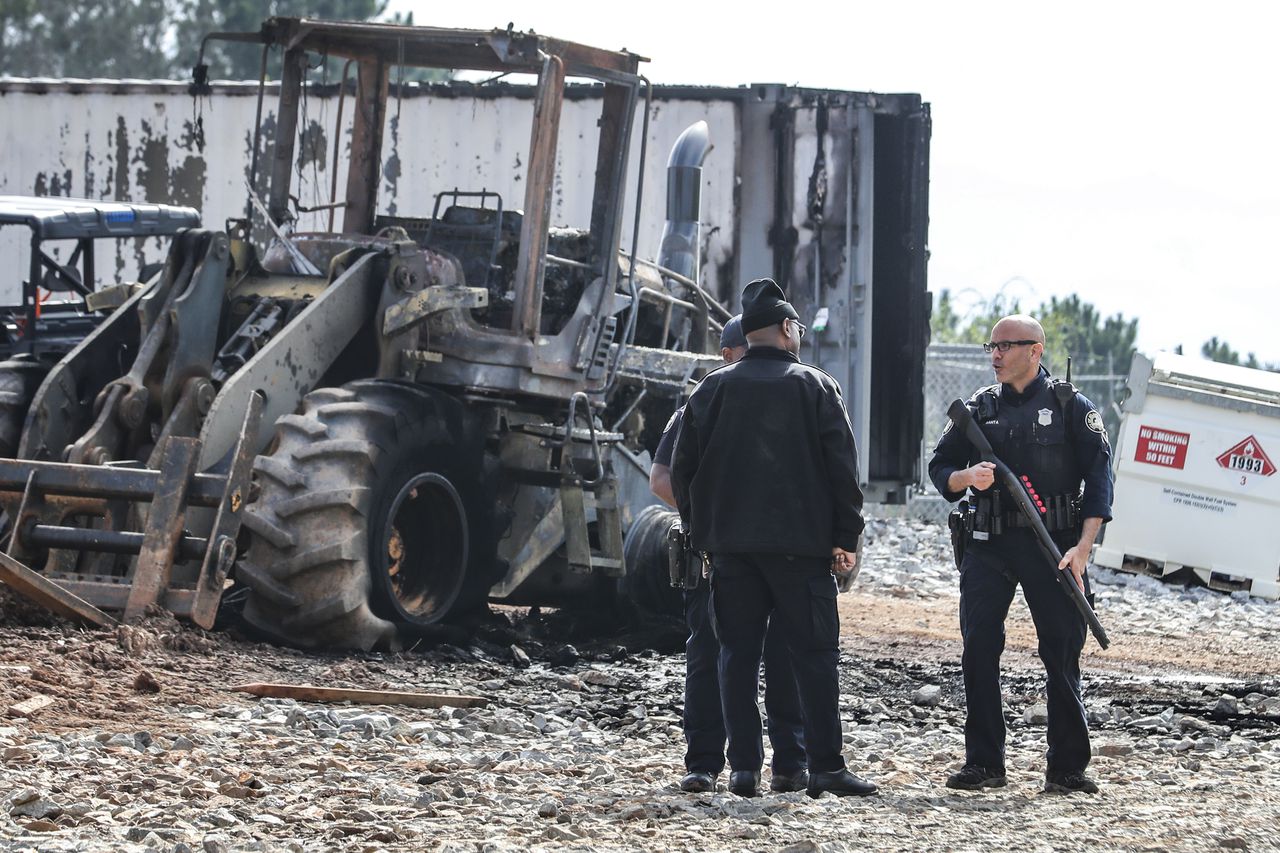SPLC: Lawyer’s ‘Cop City’ arrest ‘heavy-handed law enforcement’
A Southern Poverty Law Center lawyer charged with domestic terrorism following a protest of Atlanta’s “Cop City” was acting as a legal observer of the demonstration and was arrested despite displaying his role, the organization said Monday.
SPLC attorney Tom Jurgens was an observer on behalf of the National Lawyers Guild when he was detained by authorities after the demonstration at the site of the future Atlanta Public Safety Training Center, dubbed “Cop City” by critics.
Authorities claimed “violent agitators” threw construction equipment at law enforcement and hurled Molotov cocktails during Sunday’s demonstration, according to CNN.
The Montgomery-based SPLC said the arrest of Jurgens and 34 others was the result of “heavy-handed law enforcement.”
“An employee at the SPLC was arrested while acting — and identifying — as a legal observer on behalf of the National Lawyers Guild (NLG),” the organization said in a statement. “The employee is an experienced legal observer, and their arrest is not evidence of any crime, but of heavy-handed law enforcement intervention against protesters.”
Sunday’s arrests and charges were ”part of a months-long escalation of policing tactics against protesters and observers who oppose the destruction of the Weelaunee Forest to build a police training facility,” the SPLC’s statement continued. “The SPLC has and will continue to urge de-escalation of violence and police use of force against Black, Brown and Indigenous communities — working in partnership with these communities to dismantle white supremacy, strengthen intersectional movements and advance the human rights of all people.”
The NLG said as a legal observer, Jurgens’ role includes “supporting movement organizers and activists.” The organization added that Jurgens and other NLG legal observers are “trained witnesses of police conduct.”
In a statement, the NLG said the arrests were “part of ongoing state repression and violence against racial and environmental justice protesters, who are fighting to defend their communities from the harms of militarized policing and environmental degradation. Each of these instances, including the many protesters charged with domestic terrorism, make clear that law enforcement views movement activists as enemies of the state.”
